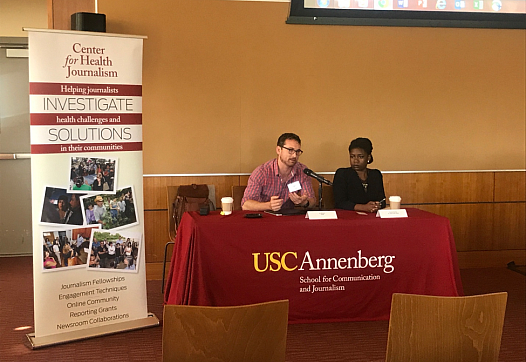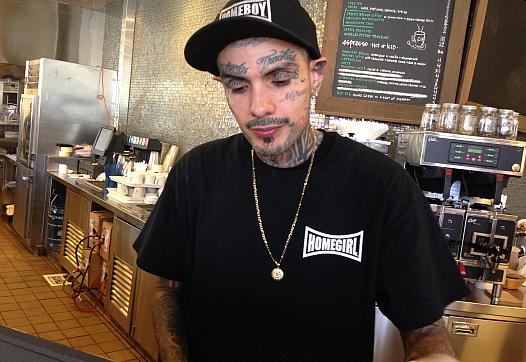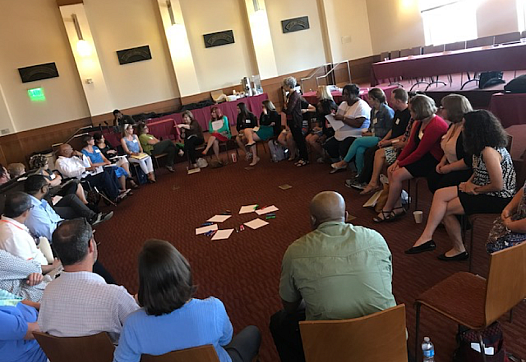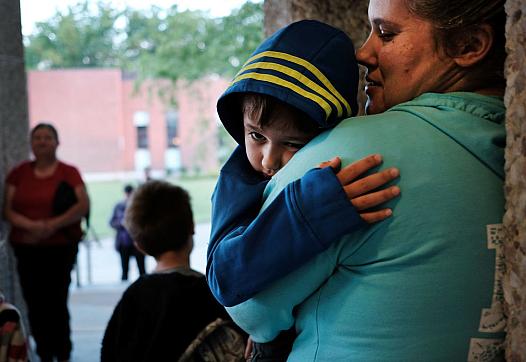
Reporters Kameel Stanley and Ed Williams discuss ethics in journalism, with a focus on communities in crisis. They emphasize how taking the time to understand a community can lead to more compelling reporting.

Reporters Kameel Stanley and Ed Williams discuss ethics in journalism, with a focus on communities in crisis. They emphasize how taking the time to understand a community can lead to more compelling reporting.

A group of reporters visits L.A.’s Homeboy Industries and learns what second chances mean for young survivors of gang life.

"To what extent do you give a fair voice to the uninformed opinion?" one reporter asked. “But who am I to say that they don’t have a voice? That’s always been a bit of a challenge to me.”
![[Photo by lina smith via Flickr.]](/sites/default/files/styles/teaser_list_thumbnail_large/public/title_images/unnamed_122.jpg?itok=C82l_X2F)
“A lot of people think that these were poor African Americans moving out, but they were actually middle-class people, because the poor people had nowhere to go," one Georgetown researchers says of the city's rising number of displaced residents.
![[Photo by Paul Sableman via Flickr.]](/sites/default/files/styles/teaser_list_thumbnail_large/public/title_images/unnamed_121.jpg?itok=8pYMiLdA)
While many policymakers still think of concentrated poverty as an issue afflicting the nation’s big urban centers, smaller cities are increasingly home to those Americans with the greatest needs and the least resources. Take East St. Louis, for example.
![[Photo by Kevin Beaty via Flickr.]](/sites/default/files/styles/teaser_list_thumbnail_large/public/title_images/unnamed_116.jpg?itok=en6MWj5l)
Many immigrants are now afraid to leave their homes for work or school for fear of being arrested and deported. This climate of fear has made children in these familes newly vulnerable to what psychologists call "toxic stress."
![[Photo by OccupyRenoMediaCommittee via Flickr.]](/sites/default/files/styles/teaser_list_thumbnail_large/public/title_images/unnamed_114.jpg?itok=XQCtUkDs)
Kentucky’s juvenile justice system has long been one of the most prolific in locking up youth on minor offenses and a recent reform has lessened — but not eliminated — the problem.
![[Photo: David McNew/Getty Images]](/sites/default/files/styles/teaser_list_thumbnail_large/public/title_images/unnamed_100.jpg?itok=-lhCUdKz)
Individuals like Loren Anthony, a fitness instructor from the Navajo Nation, are modeling healthy lifestyles and getting their friends and families involved. Grassroots organizations are starting group exercise sessions, basketball tournaments, traditional cooking classes and workshops.

The USC Center for Health Journalism welcomes 24 journalists from around the nation to its National Fellowships and awards them reporting grants of $2,000 to $10,000.
![[Photo by Igor Spasic via Flickr.]](/sites/default/files/styles/teaser_list_thumbnail_large/public/title_images/unnamed_113.jpg?itok=Z1O7Xx4m)
At each turn, the people responsible for her safety failed her — her birth parents, relatives, foster parents, the Indiana Department of Child Services, school officials, therapists and others.